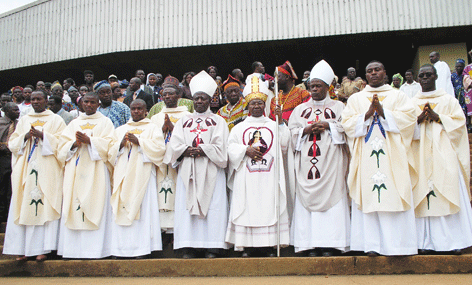
A proposed anti-bullying program in Colombia will not go ahead as planned, following a meeting between the country’s president and Catholic bishops.
Colombia’s Ministry of Education, in conjunction with two United Nations agencies, had prepared a document, titled “Discrimination-Free School Environments,” to handle sexual and gender diversity training for educators. But, after meeting with three Catholic bishops, President Juan Manuel Santos announced that the document would not be implemented, reported The Catholic Herald.
In reply to the president’s announcement, the Colombian Conference of Catholic Bishops said in a statement that it “received with satisfaction the announcement of the National Government and the Department of Education that they will not promote or implement gender ideology in the country.” The bishops did note that all human beings should be respected regardless of identities, including their “sexual orientation.”
The meeting between the president and the bishops was held one day after thousands of Colombians demonstrated against the document, which had been released on the website of the United Nations Children’s Fund. The bishops’ statement said these protests were “an exercise by the parents of their right to be assisted in educating their children in accordance with their convictions and values.” But the church-encouraged protests were, in part, inspired by pornographic images released to the public that were falsely attributed to the document. There are claims the images were released by the Office of the Inspector General, Alejando Ordonez, who is a traditionalist Catholic, though he denied them.
Colombia Reports explained the anti-bullying document was merely aimed at giving teachers “the tools to teach children about sexual diversity and show how this can reduce bullying,” an idea first proposed after a gay Colombian teenager, Sergio Urrego, died by suicide two years ago. The document was part of larger efforts to update sexual education programs and protect LGBT people, led by Education Minister Gina Parody, who is herself a gay woman.
Church leaders, however, remain powerfully connected to the Colombian government and opposed to nearly any acceptance of sexual and gender minorities. The bishops’ voices joined other LGBT-negative critics in the country who condemn, without any specificity, “gender ideology” and make claims of “colonization” against those people seeking to expand LGBT rights.
LGBT rights have, however, expanded slowly in Colombia. For instance, in June, citizens were granted the right to change legal documents to match their gender identity. Earlier in the year, the Constitutional Court legalized marriage equality.
Despite this most recent bad news in Colombia, early August has been a positive time for LGBT rights in Latin America. As of this month, transgender people in Bolivia and Ecuador are now able to have their government records match their gender identity, reported Americas Quarterly. Belize’s Supreme Court overturned an anti-homosexuality law, ending the last criminalization of lesbian, gay, and bisexual people in Latin America, according to Out Magazine.
As LGBT acceptance expands, bishops in Colombia and elsewhere should not partner with anti-LGBT movements to suppress human rights. Avoiding this strategy is most important when it comes to anti-bullying initiatives targeting youth. Yesterday’s post on Bondings 2.0 about teenager Daniel Fitzpatrick’s suicide, as well as the memory of Sergio Urrego in Colombia, are sufficient evidence of the harm caused when schools are not safe places for all students. Given these high stakes, pastoral leadership demands more from bishops than empty slogans.
–Bob Shine, New Ways Ministry

 Uganda is about 40% Catholic, and Mugisha’s advocacy has been directed to church leaders, as well as government officials. Mugisha challenges claims by church leaders and others that homosexuality is a
Uganda is about 40% Catholic, and Mugisha’s advocacy has been directed to church leaders, as well as government officials. Mugisha challenges claims by church leaders and others that homosexuality is a 
 In a new
In a new 




